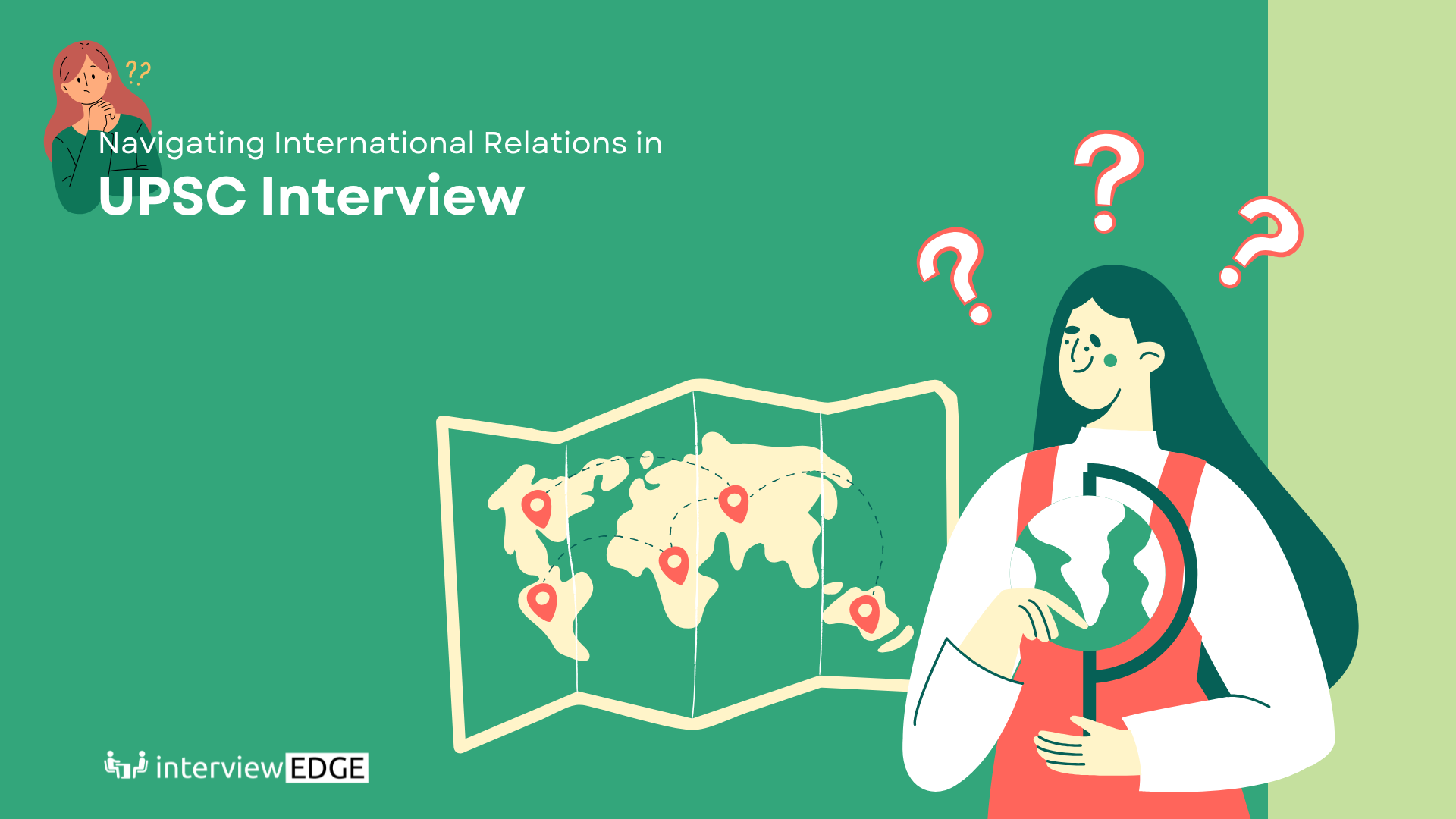 International relations is one of the most important areas of focus in the UPSC Civil Services Interview. These questions are designed to test not just a candidate’s knowledge but also their ability to analyze global issues, think critically, and connect them with India’s interests. Topics like China, which has emerged as a pivotal force in global geopolitics, often take center stage.
International relations is one of the most important areas of focus in the UPSC Civil Services Interview. These questions are designed to test not just a candidate’s knowledge but also their ability to analyze global issues, think critically, and connect them with India’s interests. Topics like China, which has emerged as a pivotal force in global geopolitics, often take center stage.
China’s rapid development, territorial claims, military assertiveness, and aggressive foreign policy make it a significant topic for discussions in the UPSC interview. Questions about its influence on global politics, its relationship with India, and its implications for India’s security and economy are common. Aspirants must prepare to navigate such complex discussions by articulating their opinions, analyzing data, and reflecting on future possibilities.
Through this blog post, we aim to help candidates understand how to approach international relations questions, especially those related to China. At Interview Edge, we focus on more than just learning facts—we help you create clear, well-organized answers that show a deep understanding of the topic. By exploring key themes, we’ll guide you on how to break down complex issues and handle such questions confidently in your UPSC interview.
Let’s begin by looking at China’s role in global politics and how it impacts India’s strategic interests.
Key Themes and Questions
- Geopolitical Tensions and Territorial Issues
Questions surrounding border disputes, particularly between India and China, come up frequently. Candidates might be asked:
- “What should be our strategy to counter China?”
- “Why has the border dispute with China been so difficult to resolve?”
- “Is it prudent for India to consider arbitration regarding border issues?”
These inquiries not only test a candidate’s knowledge about current affairs but also their diplomatic acumen and understanding of international law.
- Economic Relations and Trade Dynamics
China’s position as one of India’s largest trading partners invites scrutiny. Questions in this arena may include:
- “Is India’s growing trade deficit with China a concern?”
- “Why are companies leaving China but not necessarily coming to India?”
- “What should India do to reduce its dependency on Chinese imports?”
These questions encourage candidates to assess economic strategies, trade relations, and the broader implications of globalization.
- Military and Security Challenges
With rising tensions at the borders, security-related questions often probe the robustness of India’s military strategies. Candidates might encounter:
- “Why is China aggressive towards India?”
- “Is China becoming a maritime power?”
- “How can developing nations unite to counter China’s influence?”
These inquiries require candidates to engage in discussions on military readiness, defense collaborations, and national security.
- China’s Global Influence
As China expands its reach internationally, candidates must consider its impact on global politics, especially in regions like South Asia and the Middle East:
- “What is the significance of China’s relationships with countries like Pakistan and Iran?”
- “How does China’s Belt and Road Initiative affect India’s strategic interests?”
- “What is China’s role in Afghanistan and what are its implications for India?”
These questions explore the intricacies of foreign policy and the geopolitical chessboard where multiple players interact.
- Human Rights, Governance, and Domestic Policies
The internal dynamics of China, including human rights violations and governance, are also critical for discussions:
- “What’s your opinion on China’s treatment of Uighurs?”
- “How does China maintain order within its territory?”
- “What are the implications of China’s domestic policies on its international relations?”
Candidates should be prepared to address political sensitivities and ethical considerations while discussing China’s approach to governance.
Crafting Your Perspective
Preparing for these nuanced discussions involves not only being informed about current events but also reflecting on India’s position relative to China. Candidates are encouraged to integrate historical context, economic analysis, and geopolitical considerations in their responses.
Final Thoughts
Engaging with the vast array of questions related to China in UPSC interviews is a chance to showcase both knowledge and critical thinking skills. It’s a complex but rewarding endeavor.
And if you’re looking for tailored questions that align with your specific profile or interests—whether regarding China or any other pertinent theme—InterviewEdge is here to simplify your preparation. Our aim is to help you navigate the intricacies of your interview journey with confidence, ensuring you are not just ready but truly prepared to make your mark. We look forward to being a part of your success!
Thanks for reading!
Next up: Navigating Women centric questions in UPSC interviews.
